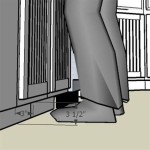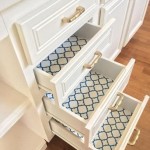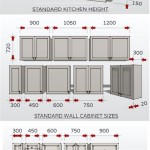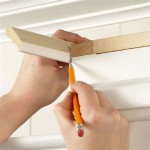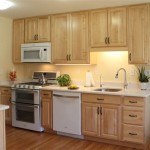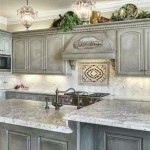Essential Aspects of Kitchen Cabinet Door Edge Protectors
Kitchen cabinet door edge protectors play a crucial role in safeguarding cabinet doors from damage caused by frequent use and potential impact. These protectors offer various benefits that extend the lifespan of cabinetry and enhance its aesthetic appeal.
This article delves into the essential aspects of kitchen cabinet door edge protectors, exploring their significance, types, materials, and installation process to provide a comprehensive understanding and guide.
Significance of Kitchen Cabinet Door Edge Protectors
Kitchen cabinet doors are constantly subjected to wear and tear. They face impact from nearby objects, accidental bumps, and constant opening and closing. Edge protectors mitigate these effects by absorbing shock, preventing dents, scratches, and splintering.
Besides protection, edge protectors also enhance the visual appearance of cabinets. They cover raw edges, creating a seamless and polished look. Custom edge protectors can further complement the cabinet's design, adding a touch of style and personalization.
Types of Kitchen Cabinet Door Edge Protectors
Edge protectors come in various types to suit different cabinet styles and usage patterns. Some common types include:
- T-Molding: This U-shaped molding fits over the edge of the door, providing ample coverage and protection.
- C-Channel Molding: This C-shaped molding wraps around the edge of the door, offering a snug fit and sleek appearance.
- Self-Adhesive Vinyl: A thin and flexible vinyl strip that adheres directly to the door edge, providing basic protection.
- Silicone Bumpers: Small, dome-shaped silicone pads that can be applied to the inner edge of cabinet doors to prevent collision damage.
Materials Used in Kitchen Cabinet Door Edge Protectors
Edge protectors are typically made from durable materials that can withstand the rigors of kitchen use. Common materials include:
- Plastic: Affordable and easy to install, plastic protectors provide basic protection from wear and tear.
- Metal: Stronger and more durable than plastic, metal protectors offer superior protection but may require more effort to install.
- Vinyl: Flexible and easy to cut, vinyl protectors provide decent protection and come in a wide range of colors and finishes.
- Silicone: Soft and shock-absorbent, silicone protectors offer excellent impact protection but may discolor over time.
Installation Process for Kitchen Cabinet Door Edge Protectors
Installing edge protectors is relatively straightforward and can be done as a DIY project. Here's a general guide:
- Clean the surface of the cabinet door edge thoroughly.
- Measure and cut the edge protector to the appropriate length.
- Apply adhesive to the edge protector as per the manufacturer's instructions.
- Align the edge protector with the door edge and press it firmly into place.
- Secure the edge protector with nails or screws if necessary.
By following these steps and considering the essential aspects discussed in this article, you can effectively protect your kitchen cabinet door edges, ensuring their longevity and aesthetic appeal.

Cabinet Door Protectors Protect Edge Of Kitchen Cabinets Hero

24in Cabinet Hero Door Edge Protector From Nicks Water Daily Wear Kitchen Doors Cleaning Cabinets

Cabinet Door Protectors Protect Edge Of Kitchen Cabinets Hero

Cabinet Door Protectors Protect Edge Of Kitchen Cabinets Hero

Kitchen Cupboard Bathroom Drawer Protectors Cabinet Hero Door Protector Buy Cabinets Doors

Drawer Edge Protectors Stainless Steel Cabinets Trash Can Cabinet

Jhk Cd027 Kitchen Cabinet Door Plastic Pvc Edge Protector Warehouse Over White Shaker China Hdf Made In Com

Jhk Cd027 Kitchen Cabinet Door Plastic Pvc Edge Protector Warehouse Over White Shaker China Hdf Made In Com

Kitchen Cabinets 9 Easy Repairs Diy Family Handyman

Syga Baby Safety Red Strip Furniture Edge Guard Cushion Corner Cover 2 Meter 6 5 Feet Tape Infant Bump Protector Buy Guards In Care At Flipkart Com
Related Posts


